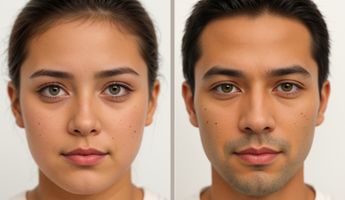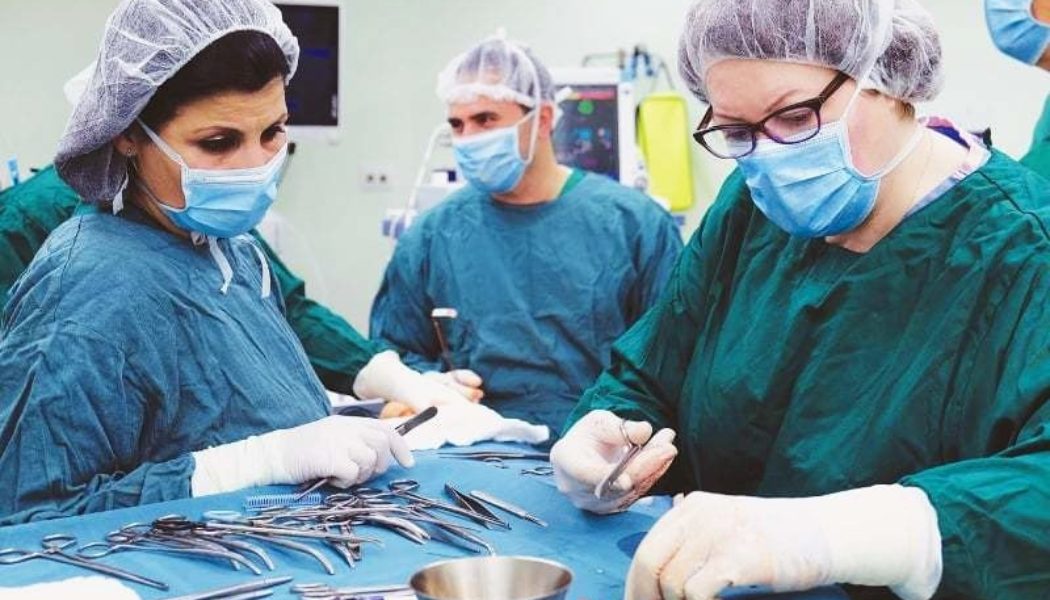Sex Reassignment Surgery (Female To Male) in Croatia
Search and Compare the Best Clinics and Doctors at the Lowest Prices for Sex Reassignment Surgery (Female To Male) in Croatia

Find the best clinics for Sex Reassignment Surgery (Female To Male) in Croatia
No pricing info available
Thailand offers the best prices Worldwide
Price: $ 556
Cosmetic Surgery Dr. Žgaljardić, located in Ul grada Vukovara A, Zagreb, Croatia offers patients Sex Reassignment Surgery (Female To Male) procedures among its total of 51 available procedures, across 7 different specialties. Currently, there's no pricing information for Sex Reassignment Surgery (Female To Male) procedures at Cosmetic Surgery Dr. Žgaljardić, as all prices are available on request only. All procedures and treatments are undertaken by the lead specialist at the Hospital, and they are not accredited by any recognized accreditations institutes
- Home
- Croatia
Compare Before & After Photos of _procedure_photos.phpSex Reassignment Surgery (Female To Male)


Half-side view


Front view


Half-side view


Front view


Front view


Front view


Front view


Front view
WHY US?
At Medijump, we're making medical easy. You can search, compare, discuss, and book your medical all in one place. We open the door to the best medical providers worldwide, saving you time and energy along the way, and it's all for FREE, no hidden fees, and no price markups guaranteed. So what are you waiting for?

Free

Best Price

Widest Selection

Risk-Free
What you need to know about Sex Reassignment Surgery (Female To Male) in Croatia

Some people are born male and some are born female. While there are some people who are transgender, whose gender identity does not match their assigned sex. Sex change surgery, also known as gender reassignment surgery (GRS) or sex reassignment surgery (SRS) is there to help these people. This is a surgical procedure that changes the sex of a person. It changes a transgender person’s physical appearance according to there identified gender. It treats gender dysphoria in these people. This includes both feminization and masculinization surgeries. In masculinization surgery, there are two domains:
- Top surgery
- Bottom surgery.
In top surgery, mastectomy is performed to remove the breasts and give your chest a more male-like contour. Bottom surgery involves increasing the length of the clitoris which is called metoidioplasty, production of a penis, and scrotum which are known as phalloplasty and scrotoplasty respectively, and removal of the uterus that is a hysterectomy. This surgery is not for everyone. A number of things are considered before opting for surgery. However, normal people with assigned gender can also go for this if they want to.
Before the operation, your assigned sex does not correspond to your gender identity. You suffer from gender dysphoria. You feel uncomfortable in your skin. However; after the surgery, you are a person of your desired sex. You are converted from a female to a male.
What is the cost of Sex Reassignment Surgery (Female To Male) in Croatia?
Like any intricate healthcare process, the price for undergoing Sex Reassignment Surgery (Female To Male) is not a fixed figure in Croatia. The final tally significantly sways due to issues like the patient's comprehensive health status, distinct surgical necessities, and the operating surgeon's level of proficiency. It's vital, too, to factor in the cost of post-procedure care, prescribed medicines, and extra treatments, all of which substantially contribute to the total expenditure.
Moreover, distinct clinics situated in Croatia might provide an array of payment structures or offer financial aid alternatives. It's advisable to undertake thorough investigations or reach out to prospective clinics directly to obtain a precise cost prediction.
What does a Sex Reassignment Surgery (Female To Male) Procedure Involve?
Anesthesia is given to ensure that the patient does not suffer from pain during the surgery. Top and bottom surgeries are performed differently.
-
Mastectomy: It is performed in two ways. In one method, an incision is given around the areola and excessive fat and breast tissue are removed through it. The skin is left as it is for a year. It retracts in this period of time. This method leaves prominent scars. In the other method, excess skin is also removed along with the tissue and fat. This leaves fewer scars. After this, male-like the contour of the chest is obtained.
In the other step, female reproductive organs that are present inside your body are removed.
-
Hysterectomy: Total Hysterectomy is the removal of uterus and cervix. Another surgery, bilateral salpingo-oophorectomy (BSO) is performed to remove fallopian tubes. In this way, the entire female reproductive system is eliminated from the body.
After this, procedures for the construction of male reproductive organs begin. They include,
- Metoidioplasty: Androgenic hormones are given to increase the length of the clitoris. Length is increased to almost 1.6 to 2 inches.
- Phalloplasty: It is performed to create a penis or to increase the length of it. It can be done in 4 ways. All of these work on the same principle. A flap of skin is taken from a donor site of the body such as an arm or abdomen to make a penis out if it. It is joined to the urethra. This is the most complicated step of GRS. An erectile prosthesis is inserted into the penis to achieve an erection.
- Scrotoplasty: Scrotum is produced from labia majora and prosthetic testes are inserted into it.
How Long Should I Stay in Croatia for a Sex Reassignment Surgery (Female To Male) Procedure?
It is a long procedure involving a number of surgeries. There is top surgery and bottom surgery. Mastectomy takes 2 to 3 hours in the operation theatre. While bottom surgery requires more time. It takes 8 to 10 hours for a female to male GRS. You should plan to stay in the area for at least 14 days after your Procedure, During this duration, your health conditions are monitored regularly and your stitches are removed after 10 to 14 days. You can go home when allowed to by your physician.
What's the Recovery Time for Sex Reassignment Surgery (Female To Male) Procedures in Croatia?
You will have to take 2 weeks off work. After 2 weeks, you can start a light activity and can go back to office work. A Patient will need more time to get back to physical work. You can start strenuous activity 4 to 6 weeks after bottom surgery. Pain killers are given in this period to deal with moderate pain. Scars take some time to fade away. It can take years after the surgery to settle both physically and psychologically.
What sort of Aftercare is Required for Sex Reassignment Surgery (Female To Male) Procedures in Croatia?
Following points should be considered to look after you post-surgery:
- Go for regular check-ups.
- Take your medicines as and when prescribed by the doctor.
- Live with someone who takes care of you while you recover.
- Abstain from sexual activity till allowed by your doctor.
- Do not take a bath or shower with bandages intact. It can cause infection.
- Avoid strenuous exercise in the early few days after surgery.
- Do not lift heavy objects; it puts pressure on your stitches.
- Avoid excessive movement. Take a rest.
What's the Success Rate of Sex Reassignment Surgery (Female To Male) Procedures in Croatia?
The success rate of Sex Reassignment Surgery (Female To Male) within Croatia depends on a spectrum of elements. Such factors encompass the proficiency and prior expertise of the surgical unit, the comprehensive health condition of the person, their mental readiness, and compliance with the suggested after-treatment attention. An abundance of research has pointed out that a majority of individuals who choose Sex Reassignment Surgery (Female To Male) acknowledge a marked enhancement in their lifestyle quality, elevated mental health, and a noteworthy contentment level with the physical transformations.
According to a study, 97% of the people who went through this surgery found their results satisfactory. You need to be sure before opting for it, as it is a lifetime decision. GRS is mainly for the treatment of dysphoric and transgender people.
Are there Alternatives to Sex Reassignment Surgery (Female To Male) Procedures in Croatia?
The following are some alternatives to sex reassignment surgery:
- Hormone replacement therapy: this therapy aids in changing your secondary sex characteristics according to your desired sex. In the case of female to male sex change, testosterone is given. This induces hair growth and coarseness of voice. It reduces breast growth and changes in fat distribution in your body. It also stops menstruation.
- Altering physical appearance: you can alter your physical appearance, your dressing, your hair, your makeup in accordance with your desired sex. Do regular exercises to build up muscle mass which will make you look like a male.
- Psychological counseling: it will make you handle your personality. Gender reassignment surgery cannot be reversed. Therefore, you should make your decision wisely.
- Cosmetic surgery: it is a wide field covering a number of domains. It can alter your facial features, your body fat, your waist, your stomach, your chest to transform you into your desired gender. You can go for liposuction, mastectomy, Botox, fillers, Rhinoplasty, etc.
All of the methods, mentioned above are not permanent but are helpful. For permanent change, you have to go for sex reassignment surgery.
What Should You Expect Before and After the Procedure
Prior to initiating the Sex Reassignment Surgery (Female To Male), it is necessary to ensure each individual undergoes thorough psychological analysis and counseling. These checks serve to affirm the patient's emotional readiness and ability to cope with the aftermath of the procedure. In addition to mental health evaluations, multiple medical assessments are implemented to inspect their overall health state. Recognizing any pre-existing health issues is of utmost importance as they can potentially impact the result of the surgery. Regularly scheduled consultations with knowledgeable healthcare professionals are fundamental to this process. These meetings will entail in-depth explanations and discussions to help formulate a holistic understanding of the entire procedure and its ensuing effects.
After the execution of the surgical procedure, there's a need for mental readiness for an extensive recovery period. This stage typically demands diligent post-procedure care and major lifestyle adjustments. Surgical recovery isn't typically a swift process - it's a path that entails physical changes and lifestyle adaptations, necessitating a period of adjustment for the patient. The adoption of healthy habits becomes particularly important during this period. Activities like regular physical activity, adhering to a nutritious diet, and incorporating stress-relief practices are proven to carry several benefits. Moreover, in addition to the emphasis on physical recuperation, mental health should also be prioritized equally.
What are Potential Risks of Sex Reassignment Surgery (Female To Male)?
Each surgical procedure comes with inherent risks and potential complications, including Sex Reassignment Surgery (Female To Male). These might encompass general surgical risks such as infection, bleeding, or adverse reactions to anesthetic drugs. Specific to Sex Reassignment Surgery (Female To Male), there may also be healing-related risks, which could result in necrosis or lackluster cosmetic outcomes. Educating oneself about the possible complications of surgical procedures is beneficial for better preparation.
Additionally, extended exposure to hormonal treatment might escalate the risk of cardiovascular ailments or osteoporosis. There could also be mental health concerns such as depression or anxiety, which may spring from society's responses or personal adaptation to a new identity. Frequent consultations with a healthcare professional are essential to keep track of and mitigate any possible risks or complications.
Whilst the information presented here has been accurately sourced and verified by a medical professional for its accuracy, it is still advised to consult with your doctor before pursuing a medical treatment at one of the listed medical providers
No Time?
Tell us what you're looking for and we'll reachout to the top clinics all at once
Enquire Now

Popular Procedures in Croatia
Prices Start From $497

Prices Start From $1,552

Prices Start From $500

Prices Start From $1,000

Recommended Medical Centers in Croatia for Sex Reassignment Surgery (Female To Male)

- Interpreter services
- Translation service
- Religious facilities
- Medical records transfer
- Medical travel insurance
- Health insurance coordination
- TV in the room
- Safe in the room
- Phone in the room
- Private rooms for patients available

- Interpreter services
- Translation service
- Religious facilities
- Medical records transfer
- Medical travel insurance
- Health insurance coordination
- TV in the room
- Safe in the room
- Phone in the room
- Private rooms for patients available

- Interpreter services
- Translation service
- Religious facilities
- Medical records transfer
- Medical travel insurance
- Health insurance coordination
- TV in the room
- Safe in the room
- Phone in the room
- Private rooms for patients available

- Interpreter services
- Translation service
- Religious facilities
- Medical records transfer
- Medical travel insurance
- Health insurance coordination
- TV in the room
- Safe in the room
- Phone in the room
- Private rooms for patients available

- Interpreter services
- Translation service
- Religious facilities
- Medical records transfer
- Medical travel insurance
- Health insurance coordination
- TV in the room
- Safe in the room
- Phone in the room
- Private rooms for patients available

- Interpreter services
- Translation service
- Religious facilities
- Medical records transfer
- Medical travel insurance
- Health insurance coordination
- TV in the room
- Safe in the room
- Phone in the room
- Private rooms for patients available

- Interpreter services
- Translation service
- Religious facilities
- Medical records transfer
- Medical travel insurance
- Health insurance coordination
- TV in the room
- Safe in the room
- Phone in the room
- Private rooms for patients available

- Interpreter services
- Translation service
- Religious facilities
- Medical records transfer
- Medical travel insurance
- Health insurance coordination
- TV in the room
- Safe in the room
- Phone in the room
- Private rooms for patients available

- Interpreter services
- Translation service
- Religious facilities
- Medical records transfer
- Medical travel insurance
- Health insurance coordination
- TV in the room
- Safe in the room
- Phone in the room
- Private rooms for patients available

- Interpreter services
- Translation service
- Religious facilities
- Medical records transfer
- Medical travel insurance
- Health insurance coordination
- TV in the room
- Safe in the room
- Phone in the room
- Private rooms for patients available
Sex Reassignment Surgery (Female To Male) in and around Croatia
About Croatia
Despite its relatively small size, Croatia presents a striking geographical diversity. It undoubtedly has a unique charm for those indulging in fantasies of an idyllic beach holiday. Being home to a vast stretch of seafront that spans thousands of miles and an intriguing archipelago with hundreds of islands, Croatia upholds a significant appeal for lovers of sun, sand, and surf.
Beyond its appealing coastlines, Croatia encompasses much more in its terrains. The expanse of the country is dotted with rugged, dramatic mountains that serve as the perfect backdrop to ancient towns that are enclosed within historical walls. The country is rich in untouched national parks that are truly a paradise for nature enthusiasts.
You also get a glimpse of regal history through majestic castles that mark the Croatian landscape. The icing on the cake is its fantastic cuisine that adds a flavorful dimension to one's experiences. Last but not least, the impressive Roman ruins scattered across the country are a testament to its astonishing historical heritage, enticing history buffs worldwide to explore Croatia.
Although Croatia is a newcomer to the medical tourism sector, the demand for medical services in the country by foreign patients is increasing. Its strong growth is largely driven by the high cost of private care and long waiting times in public healthcare in countries such as the UK and the US. Croatia is known to have affordable, top-quality treatments performed by highly qualified medical professionals. Also, medical centers in the country have modern equipment, friendly staff, and exceptional services.
Popular Parts of Croatia
Zagreb, the bustling capital of Croatia, is a vibrant city that boasts a blend of verdant parks, unconventional art galleries, and enticing museums. Even though the city pulsates with modern energy, its scenery stands distinguished by an array of neo-baroque and art deco buildings that impart a unique architectural charm.
The vibrant city of Zagreb brims with an eclectic mix of attractions that can appeal to a wide range of tastes and interests. One such unique point of interest is the Museum of Broken Relationships. This peculiar museum offers an offbeat exploration into the vestiges of love that has ended, providing a distinctively intimate glimpse into personal stories of heartbreak.
Another notable site that significantly attracts visitors is the serene Mirogoj. Not just an ordinary cemetery, Mirogoj stands out as one of the finest architectural gems in Croatia, offering a peaceful retreat within the lively cityscape. Balancing modern dynamics with a deep-rooted cultural heritage, Zagreb indeed offers engaging facets for every type of traveler.
The Croatian Museum of Naïve Art, standing as a symbol of the country’s rich artistic history, is a must-visit for art aficionados. Further, the bustling Dolac Market is the city's epicentre for fresh produce where locals and tourists alike converge. Rounding off the list is the Funicular Railway, another essential experience that offers a charming way to take in Zagreb's panoramic views.
Those who want to enjoy Croatian’s famous beaches and explore ancient monuments should visit Dubrovnik. Known as the “Pearl of the Adriatic,” this city has a giant walled Old Town, stunning mountains, and idyllic beaches.
Weather and Climate in Croatia
Croatia's summer season, extending from July to August, is characterized by lovely warm weather and dry conditions, with a generous sprinkling of sunshine across most days. Transition seasons such as spring (April to June) and autumn (September to October) also offer a fairly warm and agreeable climate, making them pleasant times to visit. However, the spring season can sometimes bring increased rainfall.
On the other hand, winters in Croatia, particularly in January, can dip into colder temperatures. This chill factor is more pronounced in areas of higher elevations, where it's common to witness snowy landscapes. Each season in Croatia brings with it a distinctive climate and charm, shaping the country's scenic beauty in different ways throughout the year.
As the calendar flips over to the cooler months, the Croatian landscape transitions from sun-kissed beaches to frost-laden terrains, especially in the elevated regions of the country. Here, it is not unusual to see snowfall, adding a whole new dimension to Croatia's captivating beauty. Still, regardless of the weather, Croatia retains its charm, offering visitors an array of unique experiences all year round. The country's seasonal moods only add to its diverse appeal, ensuring that there's always something beautiful to see or experience, making Croatia a truly year-round destination.
Getting around in Croatia
Zagreb Airport claims the title of being the largest and most frequented international airport in Croatia. This bustling transport hub is where the majority of global explorers set foot in the country.
The airport operates a host of both regular and seasonal air services that connect Zagreb to numerous metropolises worldwide. Notable among these are Paris, Toronto, London, Barcelona, Dubai, and Seoul, further emphasising Zagreb Airport's significance in global travel.
There are good transport options in Croatia. Domestic flights are the fastest option to get around, though they can be a bit expensive. The bus network is run by a lot of different companies and is generally comfortable.
The Croatian Railways has a reasonably efficient service and is cheaper than buses, but they are slower and less frequent. There is a large network of catamarans and car ferries. In major cities, the main form of transport is buses. Taxis are available and are expensive.
Tourist Visas in Croatia
EU nationals, Canadian, Australian, British, and US nationals do not need to apply for a visa to stay in Croatia for up to 90 days. While Croatia is not yet a member of the Schengen area, holders of Schengen visas to enter the country without having to apply for an additional visa.
Tips for applying for a tourist visa to Croatia:
- Plan ahead. It is important to apply for your visa well in advance of your travel date, as the processing time can vary depending on the country where you are applying.
- Be complete and accurate. Make sure to complete the visa application form accurately and completely, and provide all of the required supporting documents.
- Pay the visa application fee. The visa application fee varies depending on your nationality and the type of visa you are applying for.
- Attend a visa interview, if required. Some nationalities may be required to attend a visa interview at the Croatian embassy or consulate in their home country.
Additional Information
- Local Currency: Croatian kuna (HRK) is the official currency in Croatia. 1 USD is equivalent to 7.08 HRK.
- Money & Payments: ATMs are widespread. Credit cards, including MasterCard and Visa, are widely accepted around the country. Tipping in Croatia is expected, although it is not obligatory. It is standard to leave a 10% to 15% gratuity in restaurants. Taxi drivers usually do not expect tips, but it is common to round to the nearest kuna.
- Local Language: The official language is Croatian. Serbian, Hungarian, Slovenian, and Italian are spoken by ethnic minorities living in the country. In tourist areas, people speak good English, as well as some German and Italian.
- Local Culture and Religion: More than 87% of Croatia’s population adhere to Roman Catholic, while Eastern Orthodox Serbs are followed by around 4.4% of the population. There are small groups of Muslims, Jews, and Protestants as well.
- Public holidays: Some of the most important public holidays in Croatia are Christmas, Epiphany, Easter Monday, Labor Day, Saint Stephen’s Day, Corpus Christi, All Saints’ Day, and Assumption Day.
Popular Searches
- Plastic Surgery in Thailand
- Dental Implants in Thailand
- Hair Transplant in Thailand
- Breast Augmentation Thailand
- Gastric Sleeve in Thailand
- Gender Reassignment Surgery in Thailand
- Laser Hair Removal in Bangkok
- Botox in Bangkok
- Dermatology in Bangkok
- Breast Augmentation in Bangkok
- Coolsculpting in Bangkok
- Veneers in Turkey
- Hair Transplant in Turkey
- Rhinoplasty in Turkey
- Stem Cell Therapy in Mexico
- Rhinoplasty in Mexico
- Liposuction in Mexico
- Coolsculpting in Tijuana
- Rhinoplasty in Korea
- Scar Removal in Korea
- Gastric Sleeve in Turkey
- Bone Marrow Transplant in India
- Invisalign in Malaysia
- Plastic Surgery in the Dominican Republic
- Tummy Tuck in the Dominican Republic
- Plastic and Cosmetic Surgery in Poland
- Rhinoplasty in Poland
- Hair Implant in Poland
- Dental Implants in Poland
- IVF in Turkey
